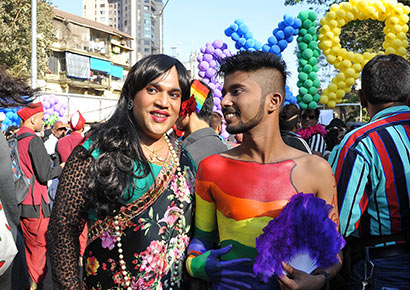India’s Supreme Court orders government to explain gay ban position

2016 Mumbai LGBT Pride
In a major development, India’s Supreme Court has ordered the government to clarify its stance on the criminalisation of homosexuality.
On Tuesday, the court gave the government until July to explain its position on the matter which continues to generate controversy in India.
In January, the court announced it was preparing to re-look at its 2013 decision upholding Section 377 of the Indian Penal Code, which punishes “carnal intercourse against the order of nature” with imprisonment.
The country is the largest democracy in the world to still ban consensual same-sex relations.
The court has since been considering petitions calling for the repeal of Section 377. It’s latest move suggests that it is continuing to actively address the matter.
The court’s notice to the government “is a watershed in the whole fight against Section 377,” one of the petitioners, Ashok Row Kavi, founder of LGBT equality group Humsafar Trust, told the Thomson Reuters Foundation.
“The government will have to decide whether this colonial law should still stand relevant in a country that has its own constitution that protects fundamental rights of its citizens,” he said.
Speaking to Asian Age, Kavi added: “I have been fortunate in being able to come out of the closet, but have personally witnessed the humiliation that LGBTQI people face and the detrimental emotional impact criminalisation and stigma has on them.
“More than anything else I have witnessed the negative, impact of the law under Section 377, IPC on the lives of LGBTQI persons, particularly gay men and transgender persons, both physically and emotionally, as a result of which they live double lives.”
Section 377 was previously repealed for four years by the Delhi High Court in 2009. In 2013, however, the Supreme Court shocked the world when it overturned the lower court’s ruling and asserted that the ban on homosexuality was not unconstitutional.
There is renewed hope that the Supreme Court will take a more progressive approach this time, especially after its August 2017 ruling that the right to privacy is “a fundamental right” and that “sexual orientation is an essential attribute of privacy”.
Activists say that this landmark ruling is seemingly incompatible with Section 377 and any continued support for the ban by the court.
Leave a Reply